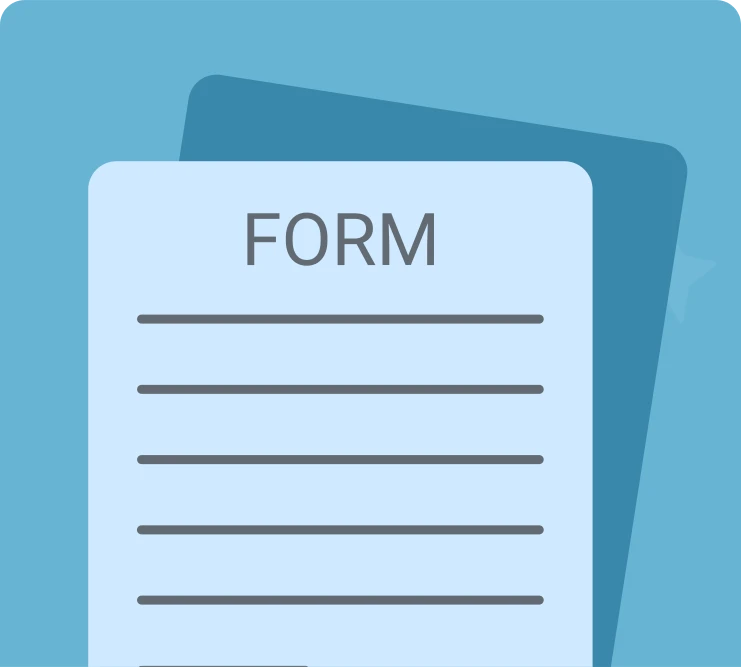What Are Gambling Taxes?
Gambling taxes are money that is paid to the government through the gambling industry in that country. Broadly speaking, gambling taxes fall into two categories:
- Tax paid by the operator on GGR or turnover
- Tax paid by the player on winnings
Across most EU countries, it’s far more common for the operator to be taxed - that’s the online betting site, online casino, land based casino, or lottery etc. - than it is for the player to be taxed on their winnings.
However, in order for operators to pay their taxes, they need to make money! This is why offshore operators are often able to provide larger bonuses, better odds on sports betting, or higher RTP games - because their tax burden is far lower.
So, while tax paid by the operator and tax paid on winnings by the player are slightly different, at the end of the day they’re all coming out of your pocket.

Why Do We Need Gambling Taxes?
Different countries have differing reasons for implementing gambling taxes, but some of the most common can be found below:
- To use funds to support responsible gambling initiatives
- To use funds to research gambling addiction
- To use funds to improve public services
Pros
- Public Funding
- Easy
- Avoidable
Cons
- Tax on Winnings
- Lower Odds
- Complex
Do You Need to Pay Tax on Gambling Winnings?
By now, you’re probably wondering - do you pay taxes on gambling winnings? The answer is a little more complicated. It depends on which country you live in and which country you’re gambling in.
Let’s imagine you live in Latvia, but you’re visiting a land based casino in Las Vegas. While US citizens would be charged tax on their gambling winnings in Las Vegas, because Latvia doesn’t charge tax on gambling winnings and has an agreement with the US, you wouldn’t be charged tax on your gambling winnings.
This gets a bit more complicated when you move into the world of online gambling, in particular if:
- You use a VPN to access casinos targeted towards players outside your country
- You play at an international casino with an offshore licence
In both of these situations it is possible to avoid paying tax on gambling winnings, but if you’re not careful end up paying additional tax that wouldn’t otherwise be due.
Choose a Casino
The first step to ensuring your gambling taxes are correct is choosing a reputable casino. If you want to avoid paying so much gambling tax then an offshore casino could be the smart choice.
Withdraw Your Winnings
Online casinos that operate in countries where tax is due on gambling winnings will keep the correct amount of tax when you make a withdrawal. They will pass this on to the relevant government, so there’s no need for you to do anything.
Check Tax Due
If you notice that tax has been taken off your gambling winnings and you want to be sure you’ve paid the right amount of gambling taxes, you need to make some checks. Check the tax percentage of the country the casino is from and the country you’re gambling from.
Use a Tax Calculator
Once you know the percentage, you can either use a regular calculator to make sure the casino has taken the right amount or use a tax calculator for your chosen country.
Match the Two
Make sure that the figure on the tax calculator and the amount you've been charged are the same. If the casino has taken more then check that they don't charge for withdrawals, as this could explain the extra fee.
Which Countries Allow Tax Free Gambling?
Below you’ll find a guide to some of the countries within Europe that allow tax-free gambling, charge tax only to bookmakers, or charge tax to both bookmakers and players. Where the tax rate varies, it depends on the overall turnover or profit of the bookmaker or player.
For example in Croatia, the player could be taxed 10% if they win less than €1,500 or 30% if they win in excess of €10,000. In Belgium there’s a sliding scale of tax for providers depending on the type of game they offer. Slots incur a higher tax and online casinos with slots pay the highest rate of all.
Tip: Note that in general, the higher rate of operator tax is paid by land-based casinos only, with online casinos and sports betting sites tending to pay less tax overall.
Country
|
Operator Tax
|
Player Tax (Winnings)
|
Austria
|
Sports betting: 5% of turnover
Online casino / electronic lotteries: 40% of GGR Land-based casinos: 30% of GGR
|
Tax-free, except professional gambling taxed as income (20–55%)
|
Belgium
|
Sports betting: 15% turnover Online betting: 11% GGR Land-based casinos: 33–44% GGR
|
Tax-free
|
Bulgaria
|
20% GGR on all gambling revenue
|
Tax-free
|
Croatia
|
Sports betting: 5% turnover
Casinos: 15% GGR
|
Progressive tax: 10% up to ~€1,327; 15% up to €3,980; 20% up to €66,360; 30% above
|
Cyprus
|
13% GGR (10% betting tax + 3% contributions)
|
Tax-free
|
Czech Republic
|
30% GGR (lotteries, betting)
35% GGR (slots)
|
15% on winnings above CZK 50,000 (~€2,000)
|
Denmark
|
Online gambling: 28% GGR Land-based casinos: 45% GGR + 30% surtax above DKK 4.5m
|
Tax-free
|
Estonia
|
Online gambling: 6% of net bets (bets – winnings) in 2025
Land-based: fixed fees (€300/month per slot, €1,406/month per table)
|
Tax-free
|
Finland
|
State monopoly (Veikkaus): 12% GGR
|
Tax-free
|
France
|
Sports betting: 55.2% GGR Horse racing: 37.7% GGR ⏎ Retail betting: ~44.5% GGR
|
Tax-free
|
Germany
|
5.3% turnover on sports bets, online slots, and poker Land-based casinos: 20–80% GGR
|
Tax-free
|
Greece
|
35% GGR all gambling
|
0% up to €100
15% on €100–500
20% above €500 (per session)
|
Hungary
|
Online sports betting: 15% GGR
Land-based casinos: 30% GGR
|
Tax-free
|
Ireland
|
2% turnover on betting Betting exchanges: 15% on commissions
|
Tax-free
|
Italy
|
Online betting: 24.5% GGR Online casino: 25.5% GGR Retail betting: ~20% GGR
|
20% withholding on lottery/jackpot winnings above €500
|
Latvia
|
Online (casino, betting, bingo): 10% GGR Land-based: €6,204 per slot/year)
€33,696 per table/year
|
Winnings up to €3,000/year: tax-free
€3,001–105,300: 25.5% Above €105,300: 33%
|
Luxembourg
|
Casino: 20–30% GGR
|
Tax-free
|
Malta
|
5% GGR on Maltese player revenue (remote operators)
|
Tax-free
|
Romania
|
Online gambling: 27% GGR Retail gambling: 23% GGR
|
Progressive tax: 4% up to RON 10k (~€2k)
20% on €2k–13.35k
40% above
|
Sweden
|
22% GGR
|
Tax-free
|
United Kingdom
|
Online casino: 21% GGR Betting: 15% GGR
Bingo: 10% GGR
|
Tax-free
|
Ukraine
|
Casinos & betting: 18% GGR
Slot halls: 10% GGR Lotteries: 30% GGR
+18% corporate income tax on profits
|
18% income tax + 1.5% levy on winnings above UAH 50k (~€1,250)
|
Working Out How Much Tax is Due on Gambling Winnings
If you’re in one of the countries where you’re personally responsible for paying tax on your winnings then the easiest way to work out what you need to pay is using a taxes on gambling winnings calculator. Remember though that most casinos will do this part for you automatically!
Gambling tax calculators work out what percentage of your winnings is due as tax. While they aren’t strictly necessary, they can be a great way of checking that the casino you’ve used has taken the correct amount.
Are Taxes Higher on Sports Betting or Casino Gambling?
For players, the tax on sports betting winnings and casino gambling winnings are usually taxed at exactly the same amount. But the story is quite different for gambling operators.
In general, operators pay a higher amount of tax on casino gambling than sports betting, though it does vary from country to country. Below is a table to show some of the highest taxed countries and how casino tax and sports betting tax differs.
Country
|
Sports Betting Tax
|
Casino Tax
|
France
|
37.7 - 52.2%
|
40.8 - 83.5%
|
Germany
|
5%
|
16 - 80%
|
Luxembourg
|
15%
|
10 - 80%
|
Denmark
|
20%
|
20 - 75%
|
UK
|
15%
|
20 - 35%
|
Austria
|
40%
|
30 - 40%
|
Tip: All of the taxes shown in this table are paid by the operator and are based on GGR (Gross Gambling Yield). This means that this percentage of tax is paid only on the operators profits and isn’t paid by the player.

Is It Possible to Avoid Gambling Taxes?
While it is possible to avoid taxes on gambling, it sits in a legal grey area. By using an offshore casino in a country where gambling winnings aren’t taxed you can avoid paying taxes on gambling.
With that said, for the majority of EU citizens, you probably won’t have to pay tax on your gambling winnings. However, you can sometimes find better odds, improved RTP, or bigger bonuses by moving to an offshore casino as the tax burden on the operator is also smaller.
Using Casinos With an Offshore Licence
At some European online casinos it is necessary to pay tax on your winnings. If this is the case then choosing to use a casino with an offshore licence might be a better idea. If you’re wondering how to access European Casinos or casinos from abroad when you don’t live in that country, don’t panic.
Some offshore casinos make themselves available to every player, regardless of the country they’re in. Others are only available if you use a VPN. This hides your physical address so the casino doesn’t know which country you’re accessing the site from.
Using Cryptocurrency for Gambling Online
Another way to avoid paying tax on your gambling winnings is to choose your casino payment methods carefully. Cryptocurrency is a good option as it’s totally anonymous, meaning the source of your funds can’t be traced. Lots of crypto casinos use this as a bit of a selling point - and you tend to get faster transactions too.
Using E-Wallets for Online Gambling
Some e-wallets don’t have to be linked to your bank account, which means that the funds within them are under much less scrutiny. This means you can use select e-wallets to avoid gambling taxes, but it’s generally not viewed as quite as watertight as using cryptocurrency.














